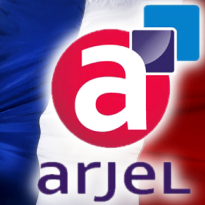France’s Liquidity Sharing iPoker Bill Has Obvious Drawbacks

For some time, French regulator ARJEL has been pushing for reforms to the country’s Digital Bill in order to improve and better regulate online gaming for its citizens. Now, ARJEL has finally succeeded in moving the French government one step closer to that goal after three new amendments were included in legislation that was passed by the French Senate in early May. The one gaining the most attention is a new provision that allows for limited shared liquidity on online poker sites, and as an extract from the measure explains:
“The steady decline of revenue from online poker games can be explained by the fact that the partitioned French regulated market is abandoned by players, who turn to illegal operators that offer poker tables with global action that are more attractive. The fact is, the more players a poker table or tournament has, the greater the reward, and the more attractive the site is.”
While ARJEL has spoken positively about the amendments allowing for player pooling across the EU, there are still some obvious problems with the new legislation.
Liquidity Is Still Highly Restricted
Under the new amendment to be added to the Digital Bill, players logging onto French poker sites can be mixed into pools with players from other countries only if those other players have accounts on sites that are regulated by another member of the European Union, or the European Economic Area.
On the surface, this may not seem like much of a problem, but the issue becomes apparent when you understand how the biggest poker sites handle player pooling. Sites like PokerStars that are set up for player pooling normally combine players in a single site that includes all players who live in countries where gambling is regulated and pooling is permitted, not just on sites that are accessible in European countries. As a result, French players are likely still to be shut out from many poker sites.
While the amended law would open up the possibility of ARJEL signing treaties with other European nations to pool players, improvements will have to be made to prevent French players from accessing games that are not specifically listed in the amendment. At this time, only Hold’Em and Omaha poker are covered by the pooling provision.
Taxation Proves Problematic
Another major problem to player pooling is how taxation would be handled. In Portugal, Spain, Italy and most other countries, taxes are calculated based on gross gaming revenues, but in France, taxes are deducted during cash games on every street. Sites will need to put changes in place to ensure that French players are taxed the correct way, and some may not be willing to invest the money to do so.
France’s odd taxation system has been earmarked as an area where online gaming improvements could be made, but industry experts believe that it will be a long time before any meaningful legislation is passed to change the taxing system.
When Treaties Could Take Place
There is a high likelihood that France may one day end up in a player pooling contract with Italy, Portugal and Spain. Pooling players from those four markets would greatly improve liquidity for sites, as together the four nations have a combined population of 250 million people. It’s unlikely that any such treaty will be signed before 2017, however, as the amendment must first be put to further votes before it can become the law of the land.
USA Watching Developments
If some of the EU’s major markets do decide to go ahead and allow shared liquidity, U.S. states will be watching developments carefully in order to gauge the effectiveness of such an approach. There is currently no federal law in the U.S. permitting online gambling, and it is left to the individual states to determine whether to regulate iGaming. While New Jersey with a population of almost 9 million has managed to develop a viable online gambling industry, the story has been a lot different for the other two regulated states of Nevada and Delaware.
As a result, these two states enacted an interstate compact in 2015, but unfortunately their small combined population makes their task all the more difficult. A tipping point, however, could be reached if New Jersey were to pool its players with them, although being in such a privileged position offers little incentive for the Garden State at this present time. This hasn’t stopped Nevada Governor Brian Sandoval pitching the idea to New Jersey, though, and as he recently commented:
“With regard to these interstate agreements, I would like nothing better than to have an agreement with New Jersey, and it seems like there’s been a reluctance on the behalf of New Jersey to do that. I signed the agreement with Gov. Markell from Delaware and it’s worked out really well. But as you say, liquidity is the name of the game. I’ve always said that putting New Jersey and Nevada together is like putting the Yankees and the Dodgers on the same team, and it would really be a great opportunity.”
Nevertheless, the situation is unlikely to change until Gov. Chris Christie, an ally of Sheldon Adelson, remains in office, or as long as New Jersey’s online poker market continues to grow and return positive results.










